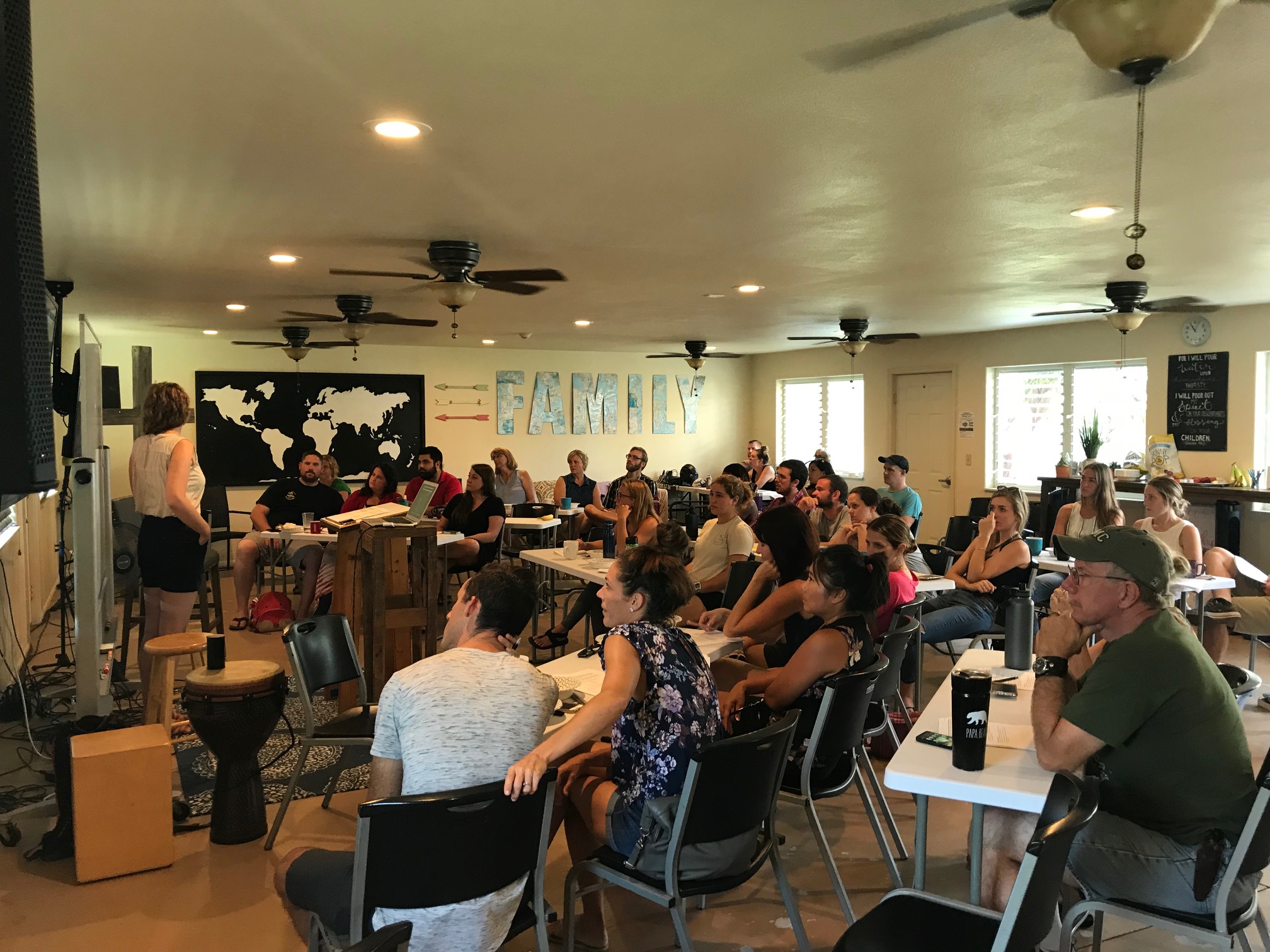Tags: Transitioning | Community Strengthening

Most of the YWAM volunteers at the Kona campus are there to train for short-term mission trips through YWAM’s Discipleship Training School. As a part of their training, there is both a lecture phase and outreach phase where students have the chance to put into practice what they have learned. David Enge is one of the aforementioned volunteers convinced he needed to share what he had learned through ACCI’s research. With a background in communications, he was well equipped to share this knowledge with YWAM teams training at the Kona location before they go out to the mission field. To do this, David created a presentation using Faith to Action and ACCI resources to teach best practices in short-term missions, which includes a dynamic video. The goal of these teaching sessions is to be the catalyst for conversations with YWAM volunteers on best practices when they are working with vulnerable children on short-term mission trips.
This new initiative was eventually named Love Wisely and is based on Philippians 1:6: “And I am sure of this, that He who began a good work in you will bring it to completion at the day of Jesus Christ.” YWAM’s motive is not to take away the volunteers’ love and compassion for children, but rather to recognize this as a good work and to see it grow in wisdom about how to best channel their compassion in a way that makes a healthy long-term impact for children, families, and communities.
David and his team quickly realized that shaming for past mistakes or good intentions puts up walls rather than creating an open dialogue. David hopes the core message that is communicated to the volunteers is “We know you have a heart for orphans. Don’t be afraid to use it, but let’s walk out with wisdom and understanding so that we can shift to long-term thinking.” They aim to honor the heart behind wanting to help, while still imparting Scripture and research on best practices for caring for vulnerable children. In order to do this, they make sure the volunteers hear perspectives from pastors, peers, and professionals, including Faith to Action.
In the Love Wisely video, experts share about how mission trips that focus on direct engagement with vulnerable children are often unhelpful and can even be harmful to the developmental growth of children in institutional care. The video encourages strengthening the communities and support systems that are already in place around vulnerable children. One YWAM volunteer humbly shares about a short-term mission trip she had previously gone on only later to realize she had not always followed best practices. She reflects, “I realized it was mainly all about me and how I could be fulfilled by this work … and I wasn’t engaged. I was confronted with brokenness and I put up a camera.”
Another YWAM volunteer opens up about her experience growing up in an orphanage for six years of her life. She brings a personal perspective to what can seem like lofty ideals. Talking about when visitors would come to her orphanage, she reflects, “For us, we felt special at that time … but after they left your life goes back to normal. You don’t have anybody, you [are] by yourself.” In this same vein of thinking, long-term volunteer Andy Byrd ends the video by summarizing, “We’ve got to learn to look beyond the immediate testimony that can be written … to ask the question: How do we truly make a long and lasting impact?”
Overall, feedback about the new initiative has been positive. YWAM volunteers are grateful to learn this new knowledge that ultimately benefits the children and communities they want to help. Some volunteers describe it as a light bulb moment when they realize that previously assumed helpful actions were actually harming children in the long term and are grateful for practical tools and advice when working with vulnerable children.
Moving forward, the YWAM Kona team piloting this initiative hopes it will spread to the more than 200 YWAM Discipleship Training Schools around the world. Further, they are working on creating more in-depth sharing on relevant topics such as trauma and attachment. By combining compassion with the best knowledge research can offer, they hope that the children, their families, caregivers, and communities will ultimately benefit in the long term because of short-term volunteers who Love Wisely.
